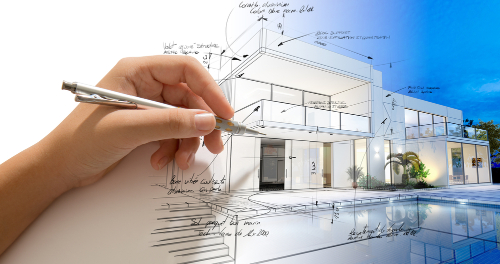
In summary: knowledge, skills and education are not enough on their own, it is the basis of the Consultancy to combine all three of them and to present the service in accordance with ethical values.
“A consultant is a company or person who performs services in accordance with the best professional practices, with due care, efficiency, skill and knowledge, within the framework of a contract.”
Depending on the size of the projects, some investors need consultancy firms to consult on all kinds of technical issues throughout the project in order to manage the processes under their responsibility.
FLORYA RIC also provides services in this regard, carrying out the services in this context and the following activities:
- Review of design development and construction plans,
- Evaluation of design changes during the construction phase,
- Supervising and tracking of the quality management,
- Management of nonconformities and preparation of directives to the Contractor,
- Control of construction schedule and progress tracking,
- Preparation of financial modeling and tender technical documents,
- Management of pre-qualification, technical question-answer, technical benchmarking processes of tenders.
- Control and follow-up of the facilities at the end of construction and in operation.
A consultant is a service provider who uses his knowledge and experience for the benefit of the investor, does not have any organic ties with the contractors of the work he advises, does not earn any income from the investor other than in return for consultancy services, and provides consultancy services.

Project Planning Pre-production
The most important stage in the realization of a Project is planning. Proper planning directly affects the success of the project. Determining the amount of financial power required for the Realization of the Investment and preparing the target cost to be the basis for the construction plans are the most important elements in the realization of the Project.
The feasibility report is the most important source in the decision whether to implement the investment or not.
In summary, the Feasibility Report is a long-term Cash Flow Statement that evaluates Alternative Discovery, Master Business Program, Market Research, Loan Costs – Revenues, Operating Expenses and Revenues.
All cost and income elements are calculated in detail by looking at all available data and summarized in the Cash Flow Statement in parallel with the planning made.
Financial evaluation is very important as the prepared construction plans will constitute the approximate budget of the building.
Architectural-engineering project services are completed by constantly checking with the budget created during the planning phase in material selection.
Immediately after the construction plans emerge, all the quantities of the Project should be made in detail and the Tender process should be started by revealing the Discovery with these quantities. Before the tender, all Technical Specifications are prepared in parallel with the preparation of the Project and Site Lists. Technical Specifications are prepared specifically for the job, depending on the content of the job. Contract attachment documents such as Tender Specification, Contract Draft, Special Administrative Specification are prepared before the tender and the entire tender process is carried out with the Employer.
The tender process begins with the preparation of the Tender Documentation and its approval by the Employer. Firms selected by the employer are invited to tender. Tender Documentation is delivered to the companies that respond positively to the invitation in exchange for signiture. Those who have questions from the Bidder Firms send their questions to the Employer in writing, and the answers to these questions are conveyed to all Firms at the same time with the approval of the Employer. Bidder Firms deliver their Price Proposals to the Employer on the same day and time, and the Bids are opened and recorded by the Employer Tender Committee. Price Proposal Files are examined in detail by us, under “administrative”, “technical” and “price” headings.
The proposals received are reported comparatively with the support of the tables and the Report is submitted to the Employer. After this report, the Bidder Firms deemed necessary are invited to the meeting separately and the questions regarding the job are conveyed to the Bidder Firms at the meeting where the Employer is present. The questions include “administrative,” “technical” and “price” topics. Bidders are requested to submit their revised price offers according to the discussions held at the meeting. In these meetings, companies are known to a greater degree and their approaches to work and their understanding of the business are evaluated. This interview and revised price offer process may be one, two or more sessions, depending on the employer’s preference. The criteria for determining the tender result are evaluated together with the Investor and technical support is provided. At the tender stage, the Consultant works only in a consultative (advising) framework and does not usually bear the same responsibility as the decision maker for any solution. The final decision-making authority and responsibility on the problem or issue belongs to the Employer or Employers.





 Project Planning Post Production
Project Planning Post Production